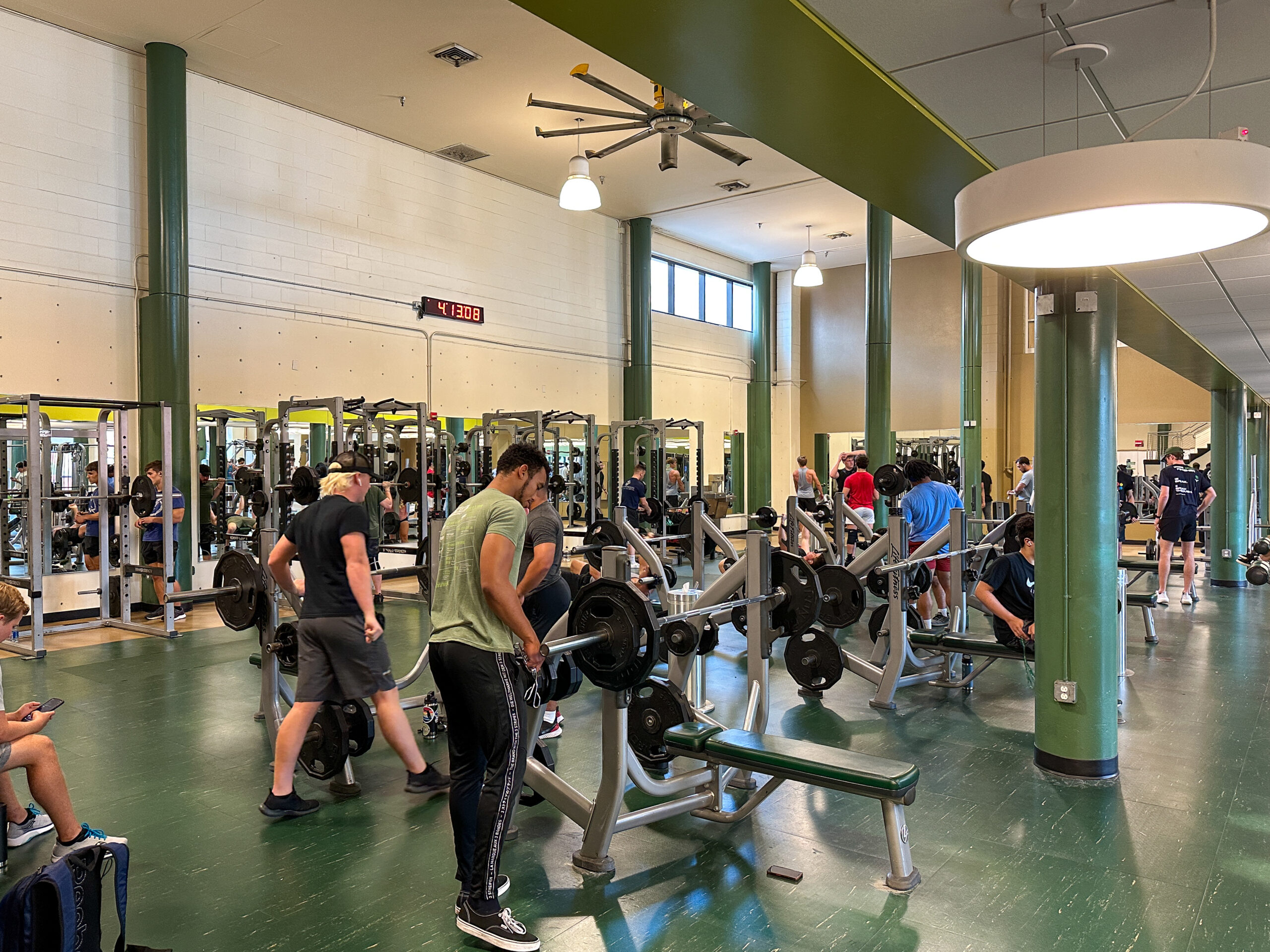A women-only USF recreation space is too controversial, leaders say

ORACLE PHOTO/JUSTIN SEECHARAN
Alexa Matos was recovering from an eating disorder in her first year attending USF. But when she stepped into the Recreation and Wellness (REC) to work out, she was immediately hit with discomfort.
“I felt like I was the only girl in a sea of men,” Matos said. “When I walk in, a bunch of eyes turn to me and I immediately walked back out. I couldn’t do that, it felt like I was going to throw up.”
In order to help women attend the gym more frequently, now as a sophomore, Matos’s goal was to have one out of the six available fitness rooms at the REC be a women-only space.
Matos surveyed other women on their experiences on campus gyms and presented a written resolution to the Relations Committee last Tuesday. The bill was deemed too “controversial” by the Relations Committee, Matos said.
“It honestly broke my heart,” she said. “My jaw was on the floor. I did not expect that.”
The Senate Committee on Relations helps “facilitate” the communication between student body and Student Government (SG), as well as composing resolutions for the issues brought to the committee, according to the website.
Matos compared the efforts of writing a resolution to working on a research paper, and said the push back felt like she was misunderstood when representing this issue.
“It honestly felt like failing a test,” Matos said. “I just studied so hard for it, put so much time into it.”
Controversiality is established when the committee believes the resolution will bring conflict into the student body or “cause problems” to the university, Matos said.
The student-elected committee, composed of two women – the chair being an absentee vote – and six men, asked Matos to rethink her resolution. Matos said she found it “odd” and that the board didn’t represent the demographics of the university correctly.
“It is a little odd that I have to tweak and rewrite something that so many women helped me create to appease men in this committee,” she said. “But they are still right, men are 40% of the student body.”
Matos, a political science and international studies major, was elected as one of the St. Pete campus senators, and serves as inaugural programming chair for all three USF campuses.
She partnered with organizations such as Women in Weights, Sisters United Muslim Association (SUMA), Planned Parenthood Generation action, survivor advocacy groups and sororities on campus, in order to write the resolution.
The single room would accommodate the majority of students – women – in attending the recreational spaces, she said.
“I want it to be like a safe haven,” Matos said.
Matos said women are more involved in campus activities but that does not translate to recreational spaces. According to her research, women attend group fitness classes, such as yoga and cycling, with more frequency due to their “controlled environment”.
“The current demographic at USF is 60% women and 40% men, yet, it is flip flopped when it comes to these spaces,” Matos said. “It is being used, primarily, by 60% men and 40% of women.”
The 2022-23 USF pocket factbook states that the total female enrollment is 57.6% and 42.4% is male.
Matos said she was disappointed, but will not give up on the initiative, working closely with the chair of the committee in order to “tweak” everything that might interfere in the resolution passing the SG senate.
“I had so many women confide in me, some of them were ready to come to the Senate to testify on behalf of their personal experiences, and we didn’t get there,” she said. “It’s like the door was shut before we even walked in the room.”






